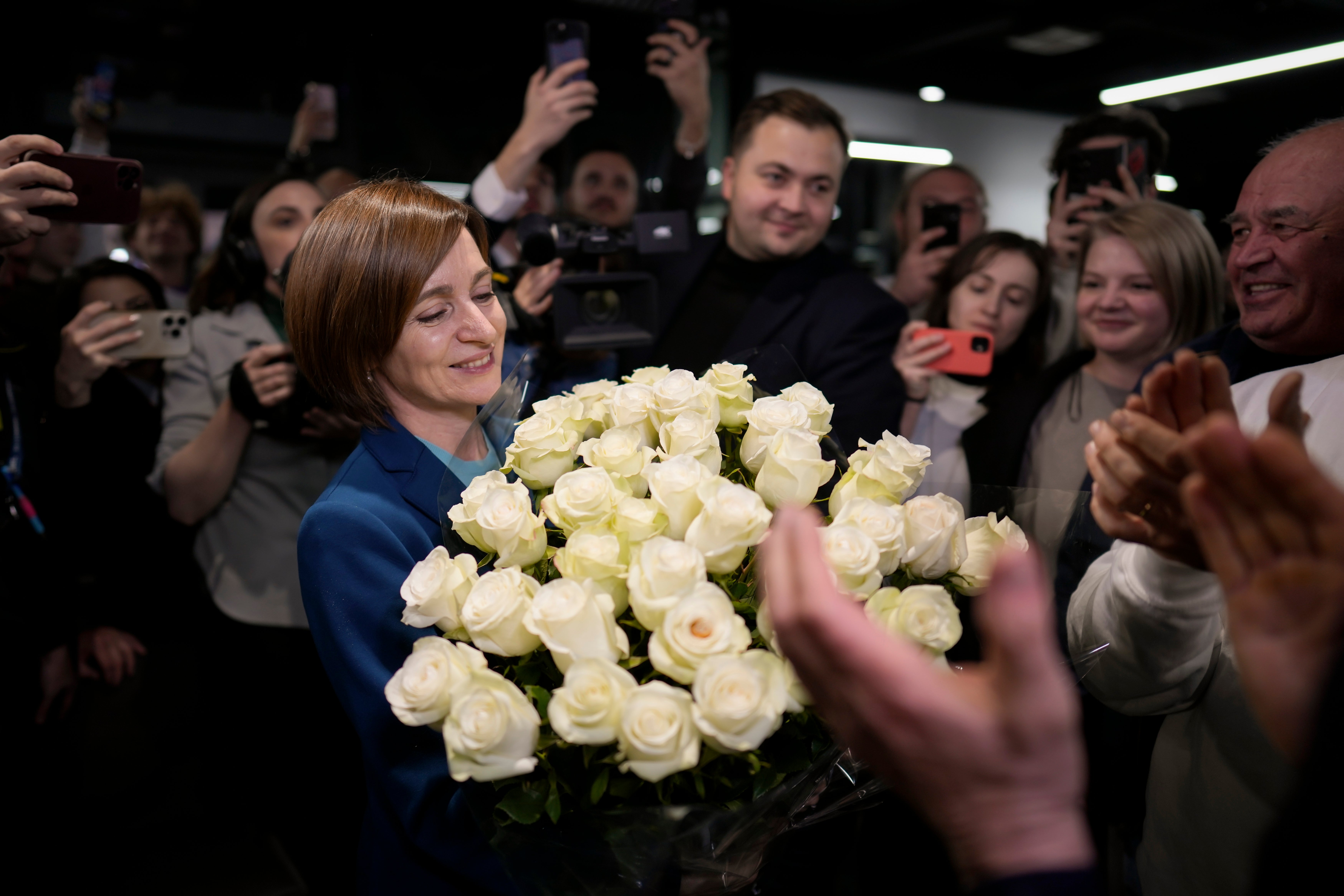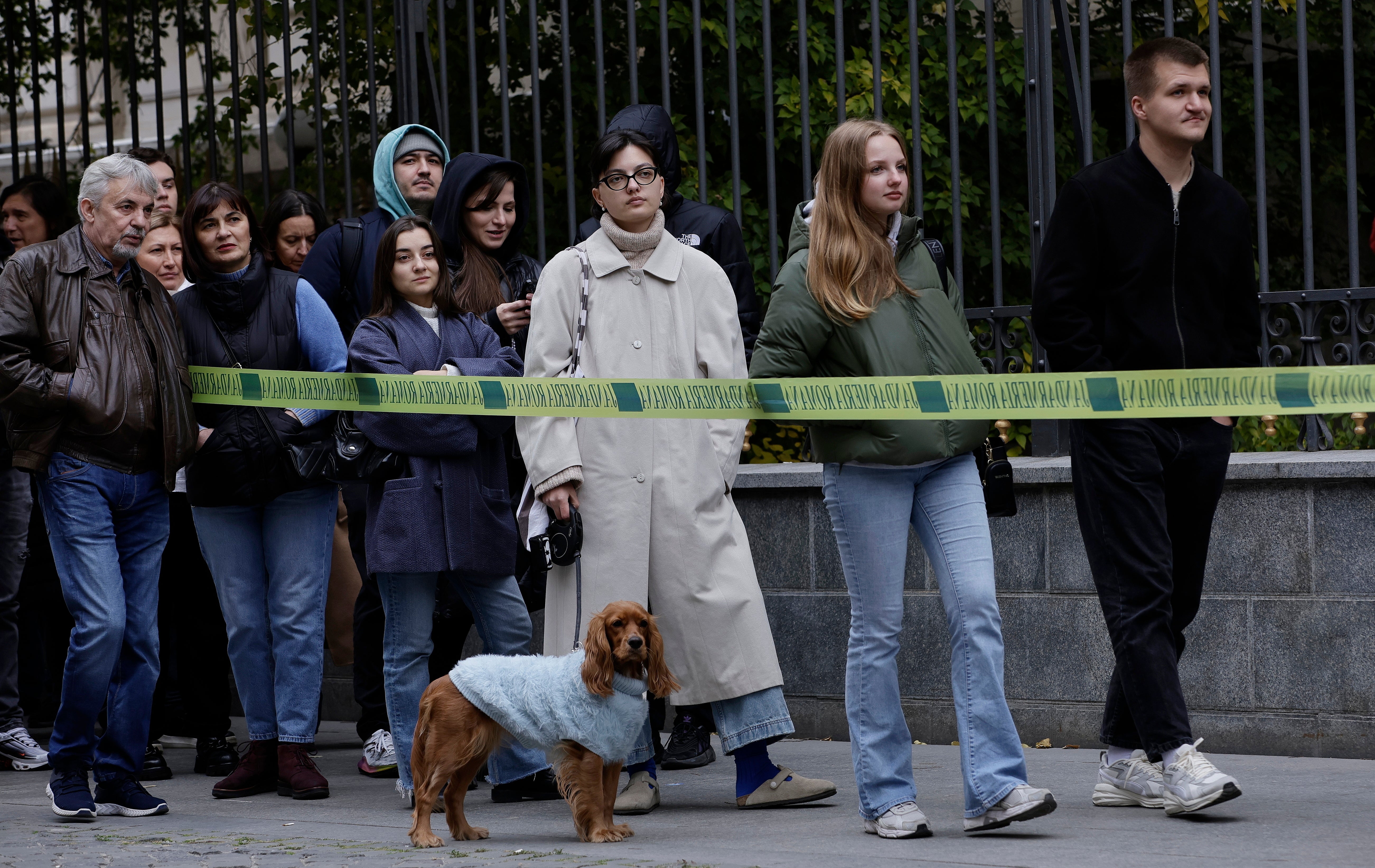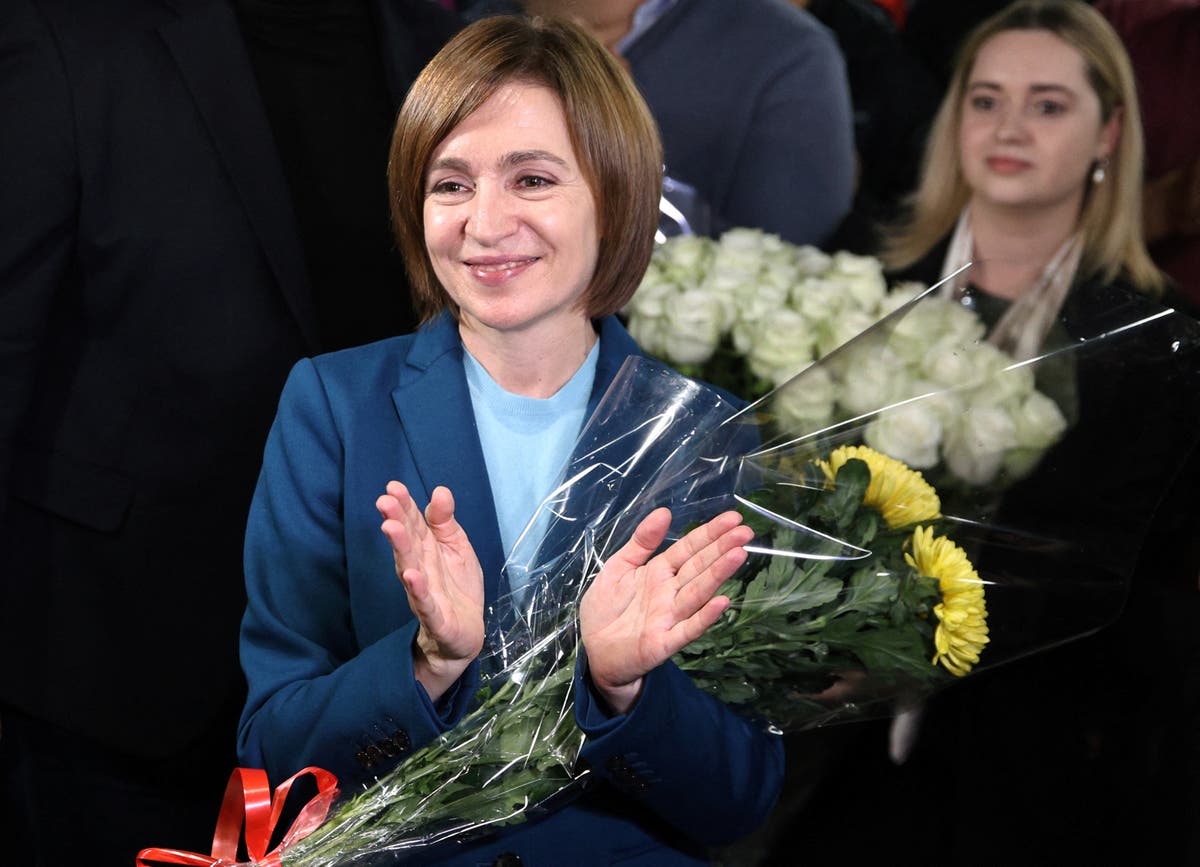Moldovan president Maia Sandu secured a second term in office in a pivotal presidential runoff election marred by accusations of Russian interference and electoral manipulation.
Her victory, with 55 per cent of the votes, was confirmed by Moldova’s Central Electoral Commission (CEC) on Sunday night, leaving her opponent, former prosecutor general Alexandr Stoianoglo, with 45 per cent.
The re-election of the pro-European leader reinforces Moldova’s drive toward closer ties with the European Union.
Ms Sandu, in her victory address, lauded her supporters and praised the election as a historic win for democracy.
“Moldova, you are victorious!” she declared. “Today, you have saved Moldova!” She further accused “hostile forces from outside the country” of orchestrating a campaign of vote-buying, and electoral interference, aimed at derailing the democratic process.

“You have shown that nothing can stand in the way of the people’s power when they choose to speak through their vote,” she added.
For Ms Sandu, who has led Moldova’s pro-Western government since 2021, the support from the electorate signals a continued mandate to pursue EU membership, a trajectory fiercely opposed by Russia. The stakes were high for Moldova’s diaspora, with more than 325,000 casting ballots, mostly in favour of Ms Sandu, marking a record turnout.
However, Moldova’s electoral process faced severe disruption. On Sunday, Moldovan police said they had “reasonable evidence” of organised transportation of voters – a practice banned by Moldova’s electoral code – to polling stations from within the country and from overseas.
They are “investigating and registering evidence” of coordinated air transportation from Russia, Belarus, Azerbaijan, and Turkey, in an effort to sway the vote. “Such measures are taken to protect the integrity of the electoral process and to ensure that every citizen’s vote is cast freely without undue pressure or influence,” police said.
Stanislav Secrieru, Ms Sandu’s national security adviser, stated on X (formerly Twitter) that cyberattacks were targeting Moldova’s voter record systems, particularly the connections between domestic and international polling stations.
“We are seeing massive interference by Russia in our electoral process,” which he warned had a “high potential to distort the outcome” of the vote.
Additionally, Moldova’s foreign ministry revealed that bomb threats temporarily halted voting in overseas polling stations, including those in Frankfurt, Liverpool, and Northampton. The threats, believed to be aimed at obstructing the democratic process, added a further layer of disruption to an already contentious election day.
Moldova‘s prime minister Dorin Recean said that people throughout the country had received “anonymous death threats via phone calls” in what he called “an extreme attack” to scare voters in the former Soviet republic, which has a population of about 2.5 million people.
After casting her ballot in Chisinau, Ms Sandu told reporters: “Thieves want to buy our vote, thieves want to buy our country, but the power of the people is infinitely greater.”
Mr Stoianoglo, Ms Sandu’s Russia-aligned opponent, refrained from conceding defeat directly, instead issuing a call for unity. “Everyone’s voice deserves respect,” he told reporters, while expressing hope for an end to the “hatred and division imposed on us”. His response highlighted the polarisation that has gripped Moldova, with pro-Russian factions challenging the country’s westward shift.
The election also uncovered a major vote-buying scheme, reportedly funded by convicted oligarch Ilan Shor, who now resides in Russia.
Prosecutors say that nearly $39m was funneled to more than 130,000 recipients between September and October through a sanctioned Russian bank.
Investigators have conducted extensive raids, seizing over $2.7m in cash and detaining individuals suspected of electoral manipulation. Among those implicated is a physician in the Gagauzia region, accused of pressuring 25 residents of a home for older adults to vote for a candidate they did not choose.
European leaders, including European Commission president Ursula von der Leyen, expressed support for Ms Sandu’s win. “It takes a rare kind of strength to overcome the challenges you’ve faced in this election,” Ms von der Leyen posted on X, signalling the EU’s endorsement of Moldova’s pro-European aspirations.
The high-stakes election underscores Moldova’s precarious position amid intensifying geopolitical tension.
Cristian Cantir, a Moldovan associate professor of international relations at Oakland University, noted that the election result is unlikely to quell the country’s political divisions. “On the contrary, I expect geopolitical polarization to be amplified by the campaign for the 2025 legislative elections.”
Mr Cantir argued that Moldova’s electoral authorities need more resources and better-trained staff to combat voter fraud effectively and “create an environment in which anyone tempted to either buy or sell votes knows there will be clear and fast consequences”.
Savlina Adasan, a 21-year-old economics student in Bucharest, said she voted for Ms Sandu and cited concerns about corruption and voters uninformed about the two candidates.

“We want a European future for our country,” she said, adding that it offers “many opportunities, development for our country – and I feel like if the other candidate wins, then it means that we are going 10 steps back as a country.”
Moldova’s path to EU membership gained momentum in 2022 when it was granted candidate status in the wake of Russia’s invasion of Ukraine. While Brussels agreed in June this year to begin formal membership negotiations, analysts warn that next year’s parliamentary vote could see even greater Russian interference.
Additional reporting from agencies

